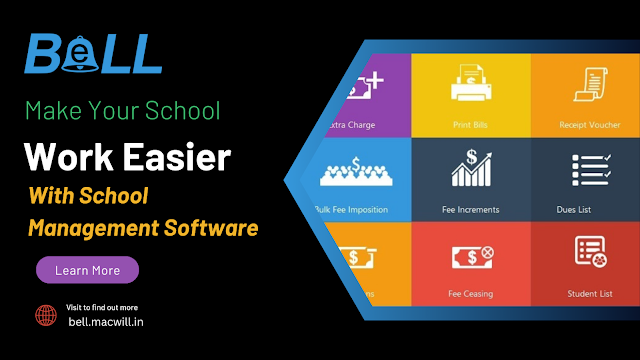The Importance Of An ERP System In Educational Facilities
Modern technology has dramatically changed our daily lives, and we can no longer survive without it. This change is evident everywhere, including in offices, hospitals, and now schools. Tablets have begun to replace actual books in forward-thinking institutions, and electronic smart boards are frequently used in place of traditional whiteboards in the classroom. Education institutions must be able to keep up with the quick-moving technological improvements in both the front office and the back office given the current state of technology.
Although the front office has adopted modern technology more readily (e.g., through the usage of tablets and smartboards), back office developments have lagged behind in comparison. But improving the back office is just as important—if not more so—for the growth of the educational organisation. The significance of ERP software within educational institutions for the development of schools will be further discussed in this article.
What does an ERP do and what is it called?
It is necessary to comprehend what an ERP system is in order to comprehend how it can help an organisation. An ERP system, which stands for Enterprise Resource Planning, is a software programme that controls many organisational functions. A school-based ERP system, for instance, will incorporate fundamental business modules like inventory management, accounting, and human resources. However, several ERP systems will offer various, distinctive characteristics. For instance, some school ERP systems offer functions like online fee payments, student management, and canteen reservations. The majority of school-related tasks will be automated by the ERP system, eliminating the need for traditional file cabinets to keep documents. As a result, schools' back offices will basically be paperless. All of the data will be conveniently saved and accessible within the system.
Why is it crucial, and how can educational institutions benefit from it?
The automation of duties like administration, attendance, hiring, and payroll will relieve employees of completing the monotonous, repetitive work and free them up to concentrate on more crucial parts that machines cannot reproduce. As a result, teachers will be better able to concentrate on teaching, pay closer attention to their students, and boost the effectiveness of the school as a whole.
The system will also give the school management a bird's eye perspective of tasks and performances, making it easier for them to monitor and supervise pupils and teachers because all school-related information is recorded within it. Information will be updated automatically by the system, and parents may see their children's performance and grades through a portal that was created specifically for them.
Conclusion
In summary, Bell school management software in India is critical to the growth and modernization of educational institutions. Because it maintains all school-related data and automates school-related tasks, it enhances efficiency and organisation within the school. I strongly urge all educational institutions to invest in an ERP system since it will enhance overall effectiveness and enable schools to be more cutting-edge and modern in terms of technology.


Comments
Post a Comment